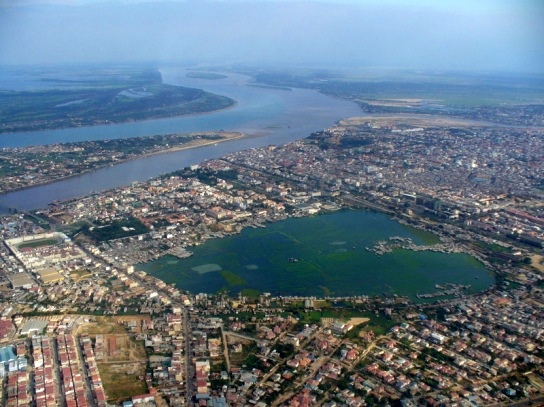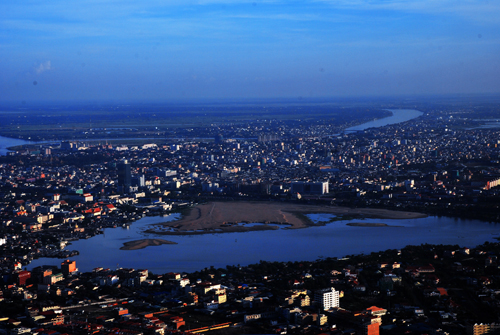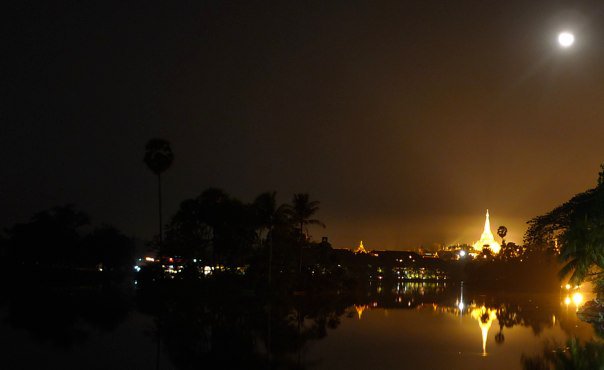The Mirror, Vol. 14, No. 650
The Mirror carried already last week a report about the extraordinary speech of the Prime Minister: “It Is Time to Stop; Military Officials Who Do Illegal Activities Are Not Fit to Work in the Royal Cambodian Armed Forces” – where he directly named several generals present, criticizing their unacceptable, corrupt behavior. During the present week, there were still positive responses in the press, including from sources not so close to the government. Human Rights Watch, a US based organization, often very critical of the political climate in Cambodia, also supported the Prime Minister’s warning to commanders over their corrupt, illegal actions. And the Prime Minister himself continued to speak according to the same line, when he attacked nepotism, warning that nobody should nominate relatives and partisans for public office.
But we got also another response: “Words are cheap, nothing will change.”
And another, also anonymous voice, calls it to be my idea – while I actually quoted Article 51 of the Constitution of the Kingdom of Cambodia – that the Cambodian people are the masters of their country, because they can vote, saying, “Having rights is not enough. You’ve got to have the power to exercise those rights, so that they can be useful. That can also explain why the civil society has always failed in demanding for respect for human rights.”
These are pessimistic views, assuming and expecting that rights can be enjoyed automatically, while history shows in many different cultures that rights have to be fought for, even if they are written in the law, when other powers violate them.
The Prime Minister has spoken clearly.
According to a report in the Phnom Penh Post of 4 February 2010, “Farmers set to call soldiers to Kampot court,” saying
“A group of people in Chumkiri, Kampot, filed a complaint in the provincial court against members of an army unit they say are encroaching on their land and cutting down their fruit trees, escalating a standoff that began in 2001… The court complaint comes less than one week after Prime Minister Hun Sen warned top military officials to refrain from participating in illegal land-grabbing operations.
‘It is time to stop every activity involving illegal business or the support of illegal business. I don’t care how many stars or moons you have – I will fire you, and nobody will keep corrupt commanders in their seats,’ the Prime Minister had said at the end of a conference on military reform at the Ministry of Defense last week.”
So we will see.
But did civil society always fail in demanding respect for human rights? It is not clear on which basis this is said, and which understanding or misunderstanding of the term ‘civil society’ is used when saying so. First, there is no general, clear definition of this term. But it refers to all movements, associations, or individual citizens, independent from the state, whose aim is to improve policies, standards, or social structures, through common efforts. Civil society – that are organizations formed for these purposes – civil society organizations, non-government organizations, citizens action groups – but civil society is also all individual citizens in a social unit – be it a residential region, or a common interest group (for example enjoying sports or music, and caring together to see that the proper space is set aside for these purposes). Civil society is citizens who organize themselves to care for the quality of life where they live.
Civil society is also the majority of the citizens of Phnom Penh, who, in their majority, do not care that the Boeung Kak lake in this city is being destroyed, being filled up with sand for the benefit of some business interests to construct a commercial and housing center – though the plans have not even been made transparent and publicly know, leaving all the struggle for rights to the several thousand people who are directly affected, because they lose their traditional environment and with it also their means of living.
On 31 August 2008 The Mirror had reported the following: “Later in January 2008, Areyathor reported that Samdech Heng Samrin, the President of the National Assembly – and also a Honorary President of the Cambodian People’s Party – had signed a letter for the suspension of pumping of soil to fill Boeng Kak lake, and the paper reported also that the Phnom Penh governor and vice-governor allegedly disagree with each other about filling Boeng Kak lake.” We are not aware that the press has done any follow up on these reports. But the public is aware that the lake is gradually disappearing, that many residents had tried to organize themselves to jointly represent their concerns and demands, and that some of the remaining residents around the lake are at present living on top of rising dirty water, as the promised pumping for stagnant dirty water – as a result of the filing in of sand – was installed too late and is not strong enough.
Recently I had the opportunity to be in Myanmar, and to have dinner one evening at the Kan Taw Gyi lakeside – a wide park where hundreds of people enjoy walking around or sitting together, with a music stage, very many small restaurants, and a wonderful view. Phnom Penh is destroying such a possibility for its future.
.
.
Does civil society – the people in general in Phnom Penh – care? Or why not?
.
Please recommend The Mirror also to your colleagues and friends.




Recent Comments